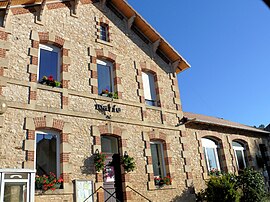
Lot is a department in the Occitanie region of France. Named after the Lot River, it lies in the southwestern part of the country and had a population of 174,094 in 2019. Its prefecture is Cahors; its subprefectures are Figeac and Gourdon.

Cahors is a commune in the western part of Southern France. It is the smallest prefecture among the 13 departments that constitute the Occitanie Region. The main city of the Lot department and the historical center of the Quercy, Cahors is home to 19,878 cadurciennes and cadurciens.

Saint-Cirq-Lapopie is a commune in the Lot department in south-western France. It is a member of the Les Plus Beaux Villages de France association.

Le Perthus is a commune in the Pyrénées-Orientales department in southern France. Natives of Le Pertus are called Perthusiens and, in 2016, there were 586 inhabitants.
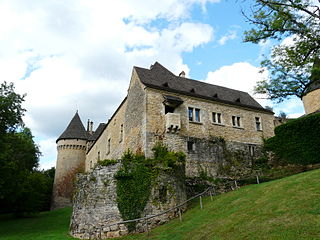
Montignac-Lascaux, is a commune in the Dordogne department, Nouvelle-Aquitaine, Southwestern France. It is a small town situated on the Vézère river and has been the capital of the canton of Montignac since 1790. In 2015 it became the capital of the newly created Canton de la Vallée de l'Homme. The poet Pierre Lachambeaudie (1806–1872) was born in the village.

Saint-Jean-d'Aulps is a commune in the Haute-Savoie department in the Auvergne-Rhône-Alpes region in south-eastern France. Situated in the heart of the Vallée d'Aulps, as well as being the home to an active farming community, it is popular with holiday-makers in the Summer, for walking, and in the Winter for skiing as it is a part of the massive Portes du Soleil ski area.

Carennac is a commune in the Lot department in south-western France in the historical region of Quercy.
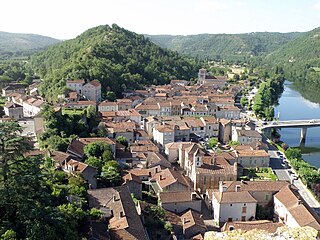
Luzech is a commune in the Lot department in south-western France.

Thenon is a commune in the Dordogne department in Nouvelle-Aquitaine in southwestern France.
Valence, also known as Valence-d'Agen, is a commune in the Tarn-et-Garonne department in the Occitanie region in southern France.
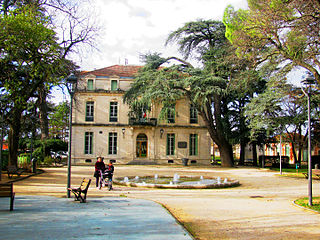
Bouillargues is a commune in the Gard department in southern France. It includes the hamlets of Garons, Caissargues and Rodilhan. It is situated to the southeast and close to the city of Nimes and in 2013 it had just over 6,000 residents.

Souillac is a commune in the Lot department in south-western France, on the river Dordogne. It is the site of the Brive–Souillac Airport, which opened in 2010. The town hosts an annual jazz festival in July. The abbey church has famous Romanesque carvings.

Ségny, also written Segny, is a commune in the Ain department in eastern France.

Almont-les-Junies is a commune in the Aveyron department in the Occitanie region of southern France.

Zonza is a commune in the Corse-du-Sud department of France on the island of Corsica.
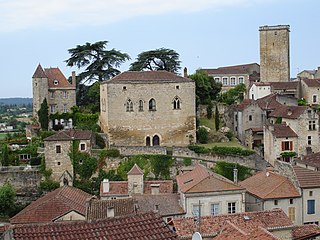
Puy-l'Évêque is a commune of France situated in the Lot department, within the Occitanie region. The town is picturesquely situated at the neck of a long loop of the Lot in Quercy on the D811 between Fumel and Cahors, at the center of the Cahors (AOC) wine region.

Zalana is a commune in the Haute-Corse department of France on the island of Corsica.

Saint-Sauveur-en-Rue is a commune in the Loire department in central France.
Lugagnac is a commune in south-western France. Lugagnac is situated in the Lot department, Occitanie region 24 kilometres from Cahors, the department capital. The commune is 497 kilometres from Paris, France.
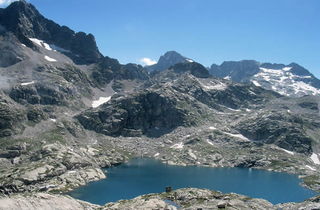
Laruns is a commune in the Pyrénées-Atlantiques department in south-western France.
